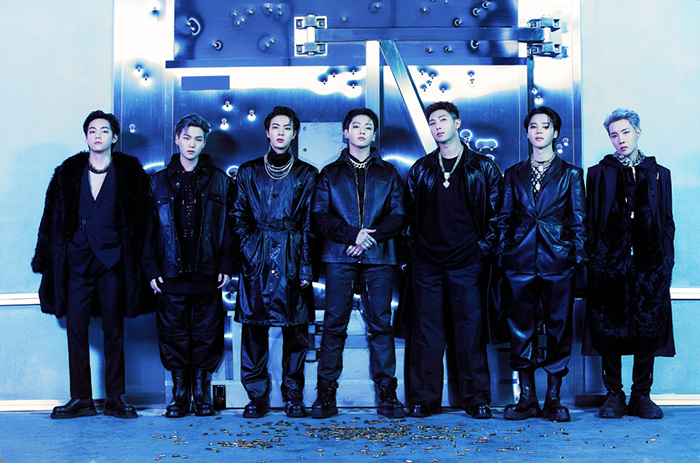Why has fandom culture become so toxic?
As someone who grew up in the 1980s, I expected that my mother was in parasocial relationships with every teenybopper in leather pants she’d see on MTV. But in all her anecdotes, I always observed an air of detachment: “I would only receive updates about them in the latest issues of Bop and Tiger Beat,” she would tell me. When I asked her why she shipped Simon LeBon of Duran Duran with his real-life girlfriend or if George Michael’s infamous scandal from the 1990s had disastrous implications on her personal life, she’d just shrug, saying, “I was just a fan to them.”
I cannot imagine this willful separation from the self as a stan today.
I came of age in a time when the internet closed the distance between celebrities and supporters and turned them into a singular entity. Stars now insert themselves into people’s lives through multiple platforms, fostering surface-level connections under the guise of an actual, reciprocal relationship.
It’s why I feel I grew up with Harry Styles, just because I would see his innocuous social media updates or binge his video diaries with the rest of the band. When I got into K-pop years later, where all boy groups graduate with Bachelor’s Degrees in fanservice, I legitimately thought I could end up with Bambam of GOT7.
“When some media, performer, or team becomes so meaningful to someone, it’s understandable to begin hinging your self-concept on it to some degree, especially for those who are still exploring who they are through what they consume, like teenagers,” explained Rissa Coronel, a licensed psychometrician who has research interests in popular culture and identity development. This process of identity formation is coupled with our heavy social media use and collective propensity for fanaticism, making Filipinos a perfect case study for this phenomenon.
If interactions with fellow supporters frequently go south, they can detract from the feeling of happiness and community that normally defines the fan experience.
As our identification with our idols crosses a certain threshold, we may end up viewing alternating viewpoints as personal attacks, to often disastrous results. Bri, a friend of mine from our BTS days, had no idea what we were doing on X (formerly Twitter) as 15-year-olds: “Do you remember how some people on Twitter would literally tell people to kill themselves just because they didn’t like [our favorite group’s] comeback? Eventually, all that damaging language seeps into your subconsciousness without you knowing. It was and is still a terrible place to grow up.”

If interactions with fellow supporters frequently go south, they can detract from the feeling of happiness and community that normally defines the fan experience. It’s no surprise that people end up leaving for their own well-being. “I still listen to BTS but I don’t think I can participate in stan culture the same way I did when we were younger,” she tells me. “I’m sure there are a lot of nice people who like BTS but I just didn’t have the energy to constantly be in that space anymore.”
Recent developments suggest that fan culture has taken an even more sinister route, with chronically online clout chasers sometimes even harming those they love. Take, for example, sasaeng behavior: a well-documented movement in South Korea, where so-called “admirers” camp outside of their idols’ homes, leak their personal details, and allegedly try to kill their opponents. On a less life-threatening yet equally troubling level, a quick scroll through our X timelines shows social media users who meddle in celebrities’ personal relationships or nitpick their appearance.
“Because we might hold them up on such a high pedestal, we forget that they don’t actually know us or owe us anything personally—they’re all speaking to their fans,” Coronel tells me. “So when they act against our expectations—for instance, our favorite love teams break up or a pop star dates someone we don’t ‘approve’ of, we could end up being betrayed.” We can’t even claim that our words mean nothing: To this day, it is believed Taylor Swift, the biggest popstar of this generation, shaded her Swifties for being too involved with her love life early last year.
But because social media echo chambers thrive in a lack of critical thinking, it’s rare to see someone owning up to their mistakes. In fact, there’s this adamant refusal to engage in productive discourse. The pettiest issues continue to be taken out of context and then addressed with the severity normally reserved for international warfare.
Acknowledging our wrongdoings requires a level of self-awareness and reflection that’s hard to achieve amid the deluge of content we’re exposed to.
My friend Sam remembers joining the hate train against Taylor Swift when she dated Harry Styles more than a decade ago. “I would send her tweets meant to slut-shame her, which is horrible but to be fair, a lot of people on our side of Twitter shared similar sentiments. When you’re an impressionable preteen, you don’t see anything wrong with it.”

Acknowledging our wrongdoings requires a level of self-awareness and reflection that’s hard to achieve amid the deluge of content we’re exposed to. Sometimes, this can take years. “It was only when I grew up and learned about the intricacies of misogyny that I realized what I did was wrong,” Sam said. “What I was saying against Taylor was just a manifestation of internalized misogyny that I am now actively combating.”
Maturity also requires considering if these issues are even worth the time and effort: “Know your boundaries and if anyone or anything crosses the line, disengage. In the age of social media, muting, blocking, reporting, and locking your accounts are always options!” Coronel suggests.
Assess, as well, the root of our agitation towards alternative takes and fellow fans: Coming to the defense of our favorite celebrity is understandable, but constantly going below the belt says a lot more about us than about them.
Honestly, even if I can’t imagine myself living in that time, maybe my mom had a point. Maybe there are perks to keeping distance, “from the screen, from the conversation, from the community,” as Coronel said. It’s in moments of clarity when we see fandom for what it is: a mere supplement to our lives, a salve to the boredom of our adult existence.
We remember the performer, the show, the team that we loved in the first place. We look back at the things they’ve done for us with gratitude, and remember that the best way to reward them is to be the best kind of fans for them.


